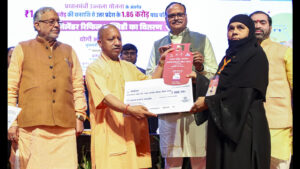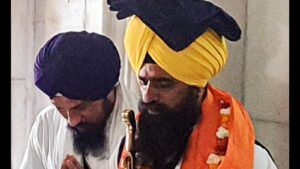Kashmiri Pandit women can enjoy migrant status even after marriage with non-migrants: J&K HC

A division bench of the Jammu & Kashmir and Ladakh High Court comprising Justice Atul Sreedharan and Justice Mohammad Yousaf Wani have recently observed that the Kashmiri Pandit women would not lose their migrant status, even if they married non-migrants.

Adjudicating a case between UT of J&K and Others vs Seema Koul and Anr, the division bench ruled that the Pandit women would not lose their migrant status, even if they married non-migrants. During the 1990s, Kashmiri Pandits fled the Kashmir Valley due to Pak-sponsored terrorism and surge in radicalisation.
In 2008, the then Union government in tandem with Jammu and Kashmir had introduced PM’s employment package for Kashmiri Pandit migrants, a move aimed at their return and rehabilitation in Kashmir.
A division bench of Justices Atul Sreedharan and Mohammad Yousuf Wani, on November 11, examined whether a Kashmiri migrant woman would forfeit her migrant status merely by marrying a non-migrant.
The DB dismissed the appeal of the J&K UT and directed the government to issue appointment order of Seema Koul and Vishalni Koul.
While directing the issuance of order of appointment to the respondents, division bench after hearing senior additional advocate general Monika Kohli for the UT, observed that “this court is of the opinion that order passed by learned Tribunal is just and proper. As per the definition of ‘migrant’ in SRO 412, it defines who a migrant is but, thereafter, has no provision for reversal of the status once granted. Thus, as per the said definition, a migrant was someone who was forced out of the Kashmir valley after 1989. This factual aspect is not disputed by appellants herein. Thus, there is no doubt with regard to the migrant status that was granted to the respondents herein”.
The court observed that these women had to leave Kashmir due to no fault of theirs and they should not be expected to remain unmarried just to preserve their migrant status and qualify for jobs in the Valley.
“A question of public importance arises before this court is whether a woman who has been given a migrant status on account of the suffering endured by her and her family and forced to leave their home and hearth in Kashmir valley because of the disturbance, could be discriminated and would stand to lose the migrant status only because she got married to a non-migrant? This would be going against the nature of human beings,” observed the DB.
The DB also observed that the two respondents, who are ladies, who had to leave Kashmir Valley, cannot be expected to remain unmarried only to secure a job in Kashmir as a migrant.
“It is also reasonable to presume that because of the mass exodus, not every migrant woman would be in a position to find a match who himself was a migrant. In such a situation, to hold that the woman would lose her status as a migrant only because she, out of the natural urge of forming a family, had to marry a non-migrant on account of existing circumstances, would be grossly discriminatory and goes against the very concept of justice,” it added.
“However, in matters relating to employment under the State/UT, such discrimination cannot be countenanced,” it concluded.
Accordingly, the DB dismissed the writ petition and ordered that the appointment orders be given by the authority concerned to the respondents within a period of four weeks.
The case stemmed from an appeal filed by the Jammu & Kashmir government challenging a Central Administrative Tribunal (CAT) order that had directed the appointment of two Kashmiri Pandit women as legal assistants in the department of disaster management, relief, rehabilitation, and reconstruction.
The women had been removed from the final selection list because they had married non-migrants.
The state had contended that the women concealed this fact.




